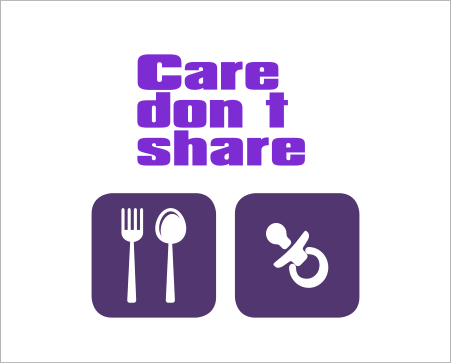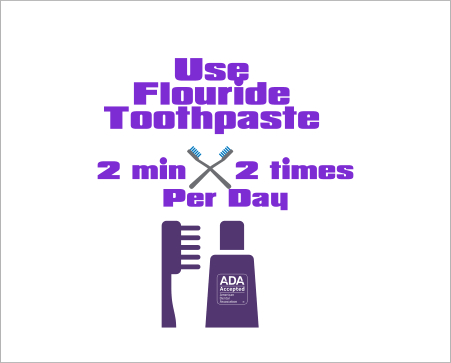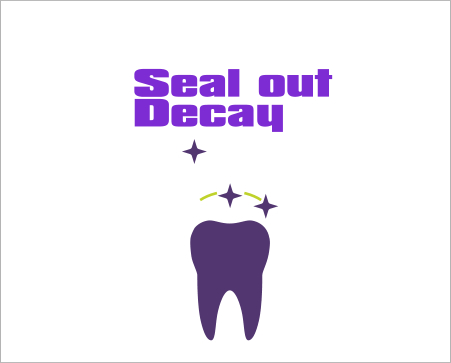October 3rd, 2021
It’s National dental hygiene month! October!
Here's a quick easy look at prevention of tooth decay.
.
1. Don’t share utensils with your child or “clean” a pacifier by putting it in your mouth. You can transfer cavity-causing germs to your child

2. Eat healthy and drink flouridated water

3. First dental visit: No later than 1 year old

4. Use flouride toothpaste

5. Seal out decay: Ask your dentist about applying dental sealants to chewing surfaces of teeth.

Tags: tooth decay, flouride tooth paste, first dental visit, babys first dentist visit, eat healthy, National dental hygiene month
Posted in Dental Health, Brushing Teeth, Health Article, Dental Article, Baby's teeth, Dentist Visit, Childrens teeth, Baby Teeth, Children | No Comments
February 15th, 2019
How sugary drinks harm your teen's teeth
| Teens and sugary drinks
The number of teenagers who consume soda today has nearly doubled from what it was several years ago. Sodas and other carbonated beverages typically contain an excessive amount of sugars and acidic flavorings that erode tooth enamel, which can ultimately lead to tooth decay.
Sipping soda through a straw can reduce the contact these beverages have with your teeth, essentially minimizing the damage. In addition, drinking water after soda helps to rinse your mouth and reduce your risk of cavities. To help keep your teeth strong for your lifetime, limit your intake of carbonated beverages.

Exploring the two main effects sugary beverages have on your teeth
Erosion
When soft drinks encounter tooth enamel( the protective layer on your teeth) the acids begin and continue to reduce the hardness of the enamel. As you drink more sugary drinks, the acids tend to do more damage.
Cavities
The next layer behind the enamel is the dentin. The acids can and will damage this layer which will then develop cavities. This develops over time as people who drink soft drinks regularly.
Some of the most common soft drinks and even drinks marked as "healthy" have loads of sugar in them.
Lots of Sugar
Soda
Energy Drinks
Chocolate Milk
Smoothies
Fruit Punch
Juice
Better Choices
Water
Unsweetened Tea
Milk
Plain Sparkling Water
Diluted
These have little to no sugar.
Don't sip:
The longer you take to drink your drink, the more time the acids and sugar have to damage your teeth. Drinking at a faster but safe pace will allow the harmful acidy beverage less time to damage your teeth.
Use Straws and drink in moderation:
Using a straw when you drink soda may help avoid cavities and tooth decay,
but the straw needs to be in the right place. Using straws is a helpful method of drinking
beverages like soda because the straw sets passed the teeth.
They will not completely help prevent cavities however, this is why drinking in moderation is also advised. The less harmful and sugary drinks are consumed,
the better the chance to preventing cavities.
Rinse your mouth with water afterward:
Flushing your mouth with some water after drinking soda will help wash away any remaining sugars and acids, and stop them from attacking your teeth.
Brushing Tip, Wait before you brush:
brushing immediately after drinking a soft drink or sugary beverage is not a good idea.
This is because the teeth that are recently attacked by acid are vulnerable and can
easily be damaged due to the added friction to the acid.
Brushing your teeth twice a day is highly recommended.
Tags: tooth decay, acids, teenagers, soda, erosion, cavities, soft drinks, chocolate milk, smoothies, water, sugar, erode tooth enamel, decay, teens, harmful acids, preventing cavities, use straws, teens drinking soda
Posted in Common Dental Problems, Dental Problems, Dental Tips, Dental Health, Healthy Food, Health Info, Cavities, Brushing Teeth, Health Blog, Health Article, Dental Article | No Comments
December 28th, 2018
Your child has had teeth for a very short while, however, they face
many common dental problems that adults encounter.
Pediatric dentists are specially trained to examine and manage
dental issues in the mouth and jaw.
Acting fast on developing issues can spare your young ones the
unnecessary pain and save time and money.

Tooth decay is extremely common among children. It is caused by bacteria and plaque
acids that attack and destroy tooth enamel. Attention to diet and strict oral hygiene
can help prevent decay.
Thumb sucking is not usually a cause for concern unless it persists after the development of permanent teeth. At this stage, it could affect dental health.
A kids’ dentist can work with your child to find a solution.
Gum disease, also called gingivitis, is an inflammation of gum tissue that can progress
to bone damage and tooth loss. It is often caused by poor oral hygiene.
Your dentist can help reverse early stages of gum disease and improve your
child’s oral hygiene habits.
Bad breath can affect people of any age. Potential sources of mouth odor include
poor dental hygiene, inflames gums, and dry mouth. It may also be related
to medical issues.
An over-retained primary tooth is a baby tooth that remains in position while
a permanent tooth is trying to erupt into the same space. It could indicate
impaction or a congenital abnormality. Early diagnosis ensures a
better outcome.
Tooth grinding is common during childhood development. It can damage primary or
permanent teeth and can even cause pain. Your kid’s dentist can treat the problem
with a custom night guard.
Proper oral care provides early prevention to dental problems and creates
good oral health for a lifetime. If your child does not have a dentist or has not been seen
in a while, call us and schedule a visit. If you have any questions, please feel free to contact us. We are always willing to help.
To request an appointment click here or call
Tags: common, dental, problems, kids, children, tooth decay, plaque, thumb sucking, bacteria, acids, gum disease, gingivitis, inflammation, gum tissue, dentist, hygiene, oral hygiene, bad breath, dry mouth, baby tooth, childhood development, tooth grinding, oral care, oral health, child, primary tooth, proper oral care, permanent teeth, good oral health, congenital abnormality, impaction, custom night guard, inflamed gums, dental hygiene, medical issues, dental issues, mouth odor, child’s oral hygiene habits, bacteria and plaque, prevent decay, developin, issues, prevention
Posted in Common Dental Problems, Dental Problems, Dental Tips, Dental Health, Health Info, Dental Services | No Comments










